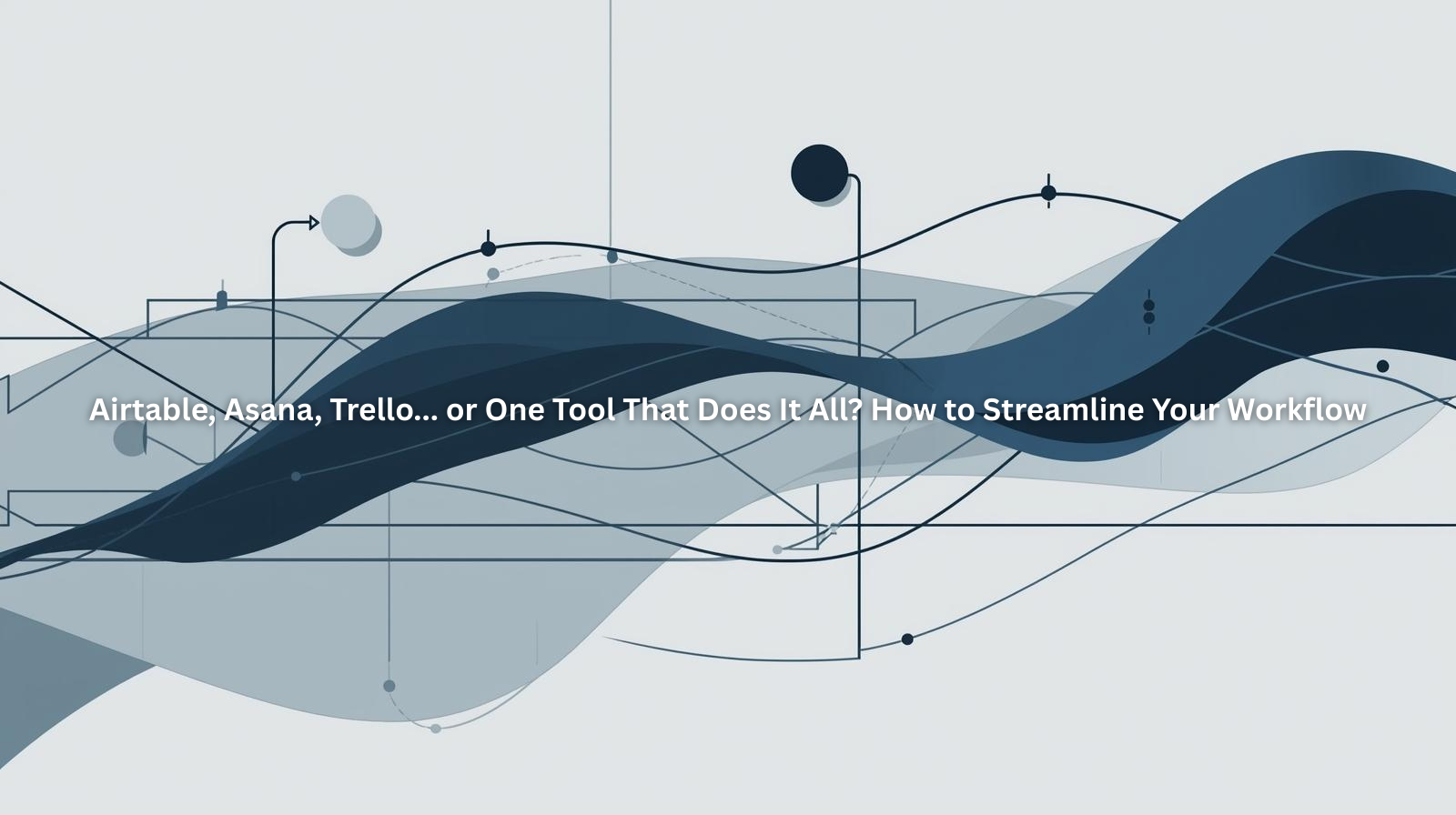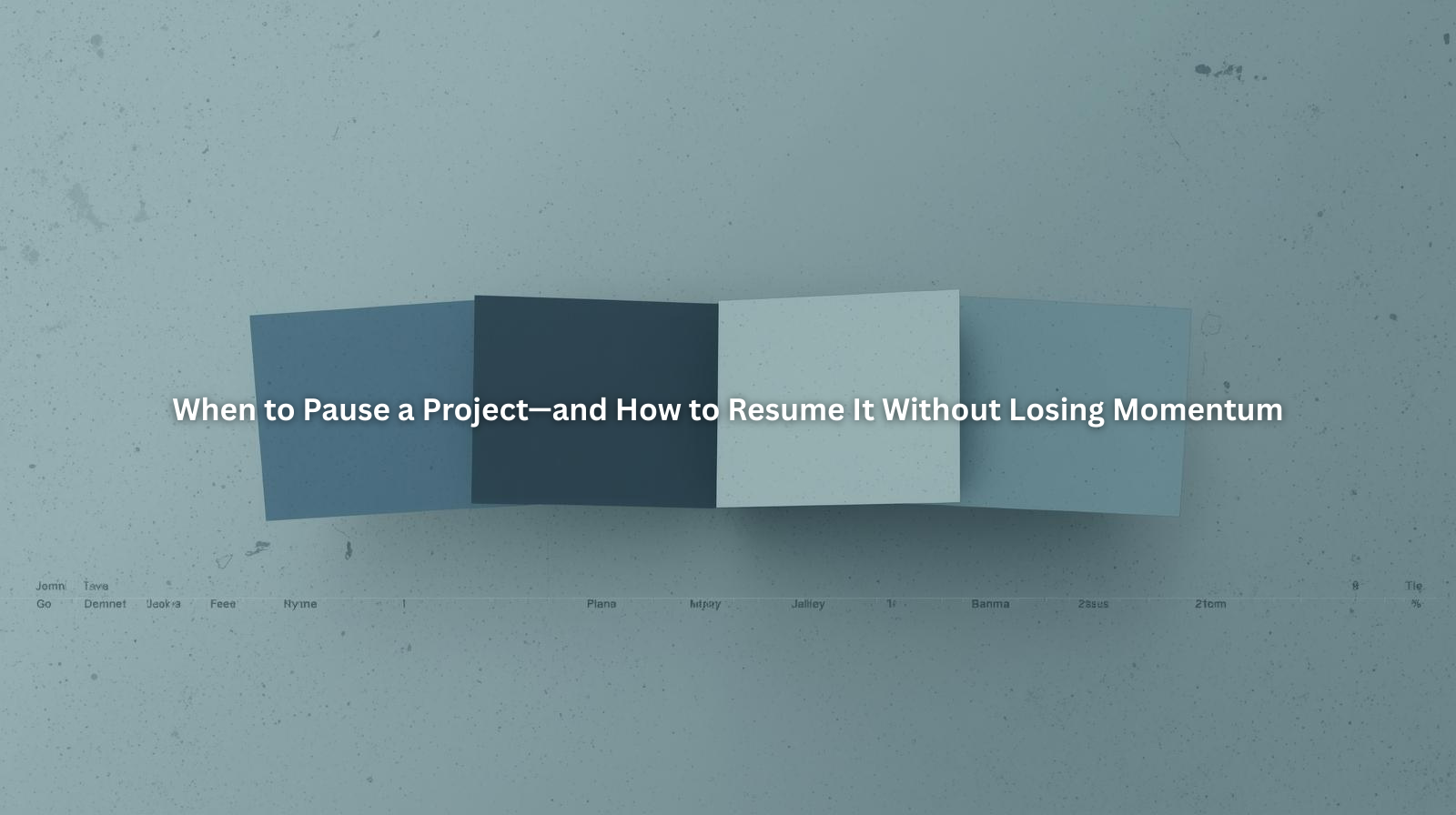Using Phases vs. Deadlines: Which Works Best for Freelancers?
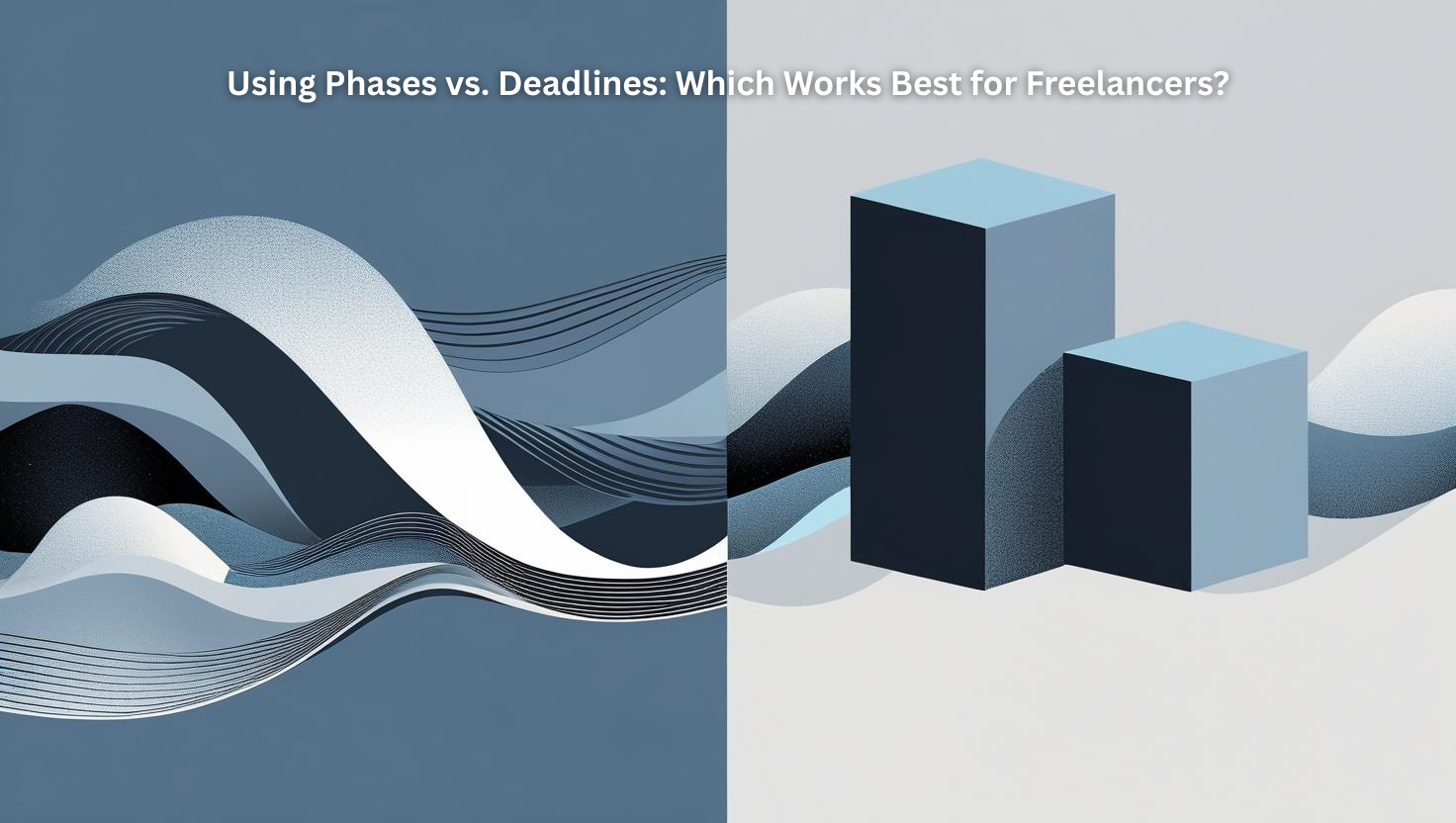
Table of Contents
- Why Most Freelancers Struggle with Deadline-Only Planning
- What Are Project Phases (And Why Do They Matter)?
- The Problem with Treating Every Task Like a Hard Deadline
- When Phases Work Better—and When Deadlines Still Matter
- Building a Hybrid Structure That Keeps Projects Moving
- How ProjectBook.co Helps You Plan with Flexibility and Clarity
- FAQ: Freelance Project Timelines
1. Why Most Freelancers Struggle with Deadline-Only Planning
Deadlines get a lot of attention in the freelance world. We circle dates, count down to launches, and let looming due dates drive our focus (and stress levels). But here’s the thing: for solo business owners juggling multiple clients, tasks, and life responsibilities—deadline-only planning often creates more anxiety than clarity.
We end up treating every task like an emergency. And when things shift (as they always do), it throws the entire plan off balance. You’re left scrambling to hit arbitrary due dates, rather than moving through a thoughtful project flow.
Deadlines are useful, sure. But they’re not always the best organizing principle—especially when you’re the only one managing the work.
2. What Are Project Phases (And Why Do They Matter)?
Project phases are a way of organizing work into meaningful, logical chunks. Instead of thinking in terms of “everything needs to be done by Friday,” phases allow you to see your project in stages: Discovery, Drafting, Feedback, Final Delivery, and so on.
Each phase has a purpose, a beginning and an end, and often a different type of energy required. For example, the Drafting phase might be heavy on deep focus, while the Feedback phase might require responsiveness and edits.
By planning in phases, you create space to adjust based on how the project evolves—without losing track of the big picture. It’s less about chasing deadlines and more about following a rhythm.
3. The Problem with Treating Every Task Like a Hard Deadline
When every single item on your list has a fixed due date, your brain starts to panic. Even flexible tasks start to feel urgent. You’re constantly reprioritizing, rescheduling, and feeling guilty when life gets in the way.
It also makes collaboration harder. Clients often miss review windows, or deliver feedback late, which throws off the timeline. If you’ve built your entire plan around unmovable dates, these shifts ripple out and disrupt everything.
Rigid timelines often don’t reflect how creative, collaborative work actually unfolds. And when freelancers cling too tightly to fixed deadlines, we end up stressed, overbooked, and behind—not because we’re disorganized, but because the system was too brittle to begin with.
4. When Phases Work Better—and When Deadlines Still Matter
Phases are ideal for helping you stay in flow. They guide your focus without the pressure of exact timestamps. For example, you might know you’re in the “Concepting” phase this week, and the “Execution” phase next week—but within that, your days can flex depending on energy, feedback, or workload.
That said, deadlines still matter. Especially external ones. If a client launch is scheduled for the 30th, you need a roadmap that ensures everything’s ready beforehand. But that roadmap doesn’t need to be built from 15 micro-deadlines. It can be structured around clear phases—with a final deadline anchoring it all.
The sweet spot? Use phases to guide the process, and only assign firm deadlines where they actually move the project forward. Everything else can live in a flexible flow.
5. Building a Hybrid Structure That Keeps Projects Moving
You don’t have to choose one or the other. The best freelance systems combine the structure of phases with the clarity of key deadlines. Here’s how that might look:
- Map your project in phases: Start with Discovery, Planning, Drafting, Review, Delivery.
- Assign milestones or deadlines to just a few critical points: first draft delivery, final file handoff, etc.
- Let daily or weekly tasks flex within each phase, based on how things are flowing.
This hybrid structure allows for momentum and adaptability. You stay on track without stressing over every small shift—and clients get the confidence that things are progressing toward a clear finish line.
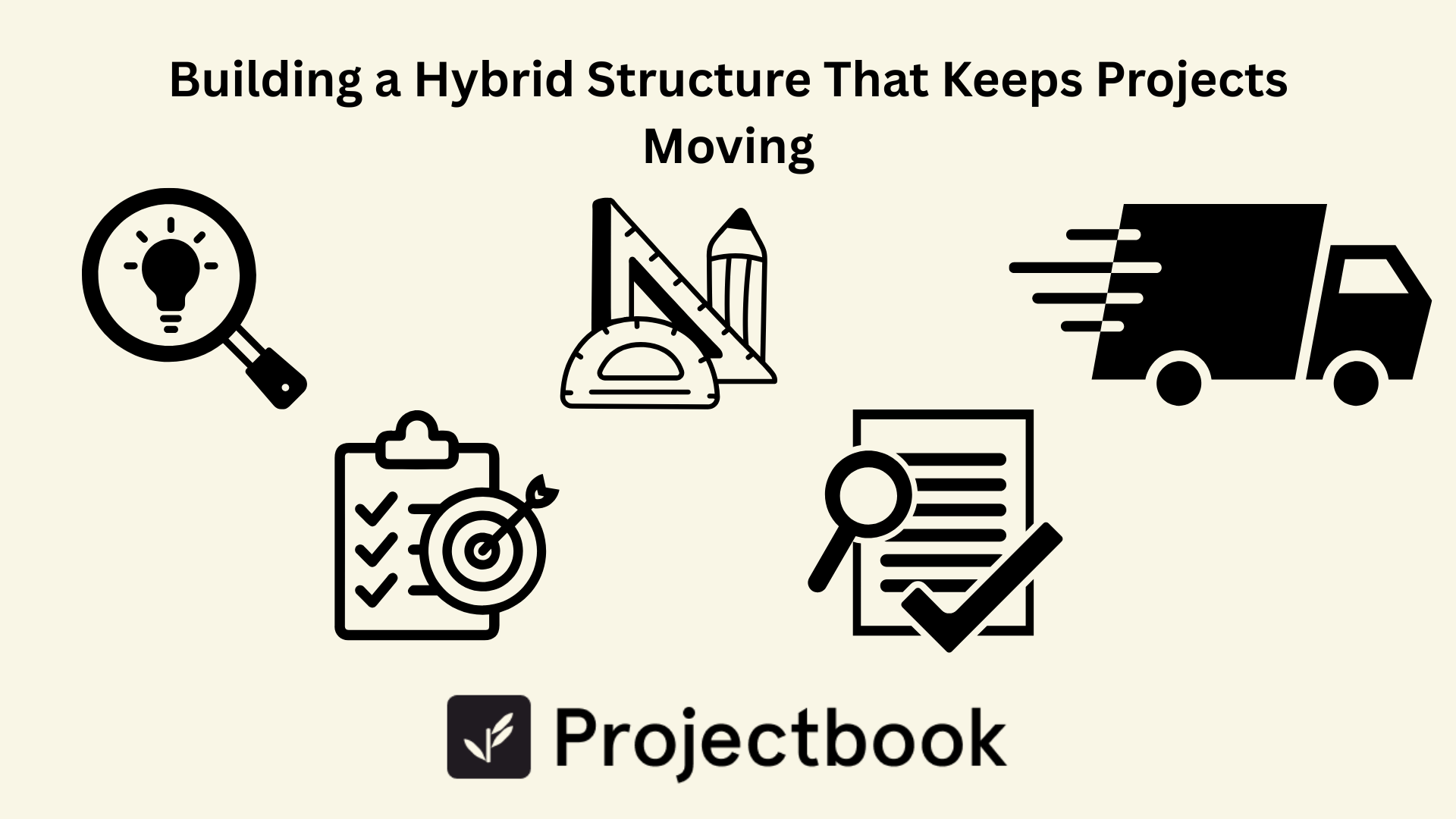
6. How ProjectBook.co Helps You Plan with Flexibility and Clarity
With ProjectBook, you can organize your client work into structured phases—so you always know where you are in the process. Whether you're juggling multiple projects or focusing on one big deliverable, the platform helps you break work into logical chunks without micromanaging every deadline.
You can set milestone dates where it matters and leave room for natural movement in between. You can also tag tasks by phase, effort level, or priority, so your project view stays clear even when timelines shift.
And because everything—tasks, notes, deliverables—is in one place, you don’t have to rely on memory or scattered emails to track what’s happening when. You just check your phase, see what’s next, and move forward with calm.
7. FAQ: Freelance Project Timelines
Is it okay to not have deadlines for some tasks?
Yes. Many freelancers thrive when tasks are grouped by phase or priority rather than fixed dates. Just make sure milestones are still clearly defined.
How do I explain phases to clients?
Use friendly, outcome-based language. For example, “This week we’ll be focused on drafting,” or “Once I get your feedback, we’ll move into the final revision phase.”
What if my client insists on hard deadlines for everything?
You can still work internally with phases, while providing deadline-based updates. Try saying, “Internally, I use a phased approach to stay organized, but I’ll make sure all key deliverables are ready by [date].”
How does ProjectBook support both styles?
You can build project timelines with both phases and due dates. Tasks can be sorted, labeled, and tracked by progress—giving you the best of both worlds.
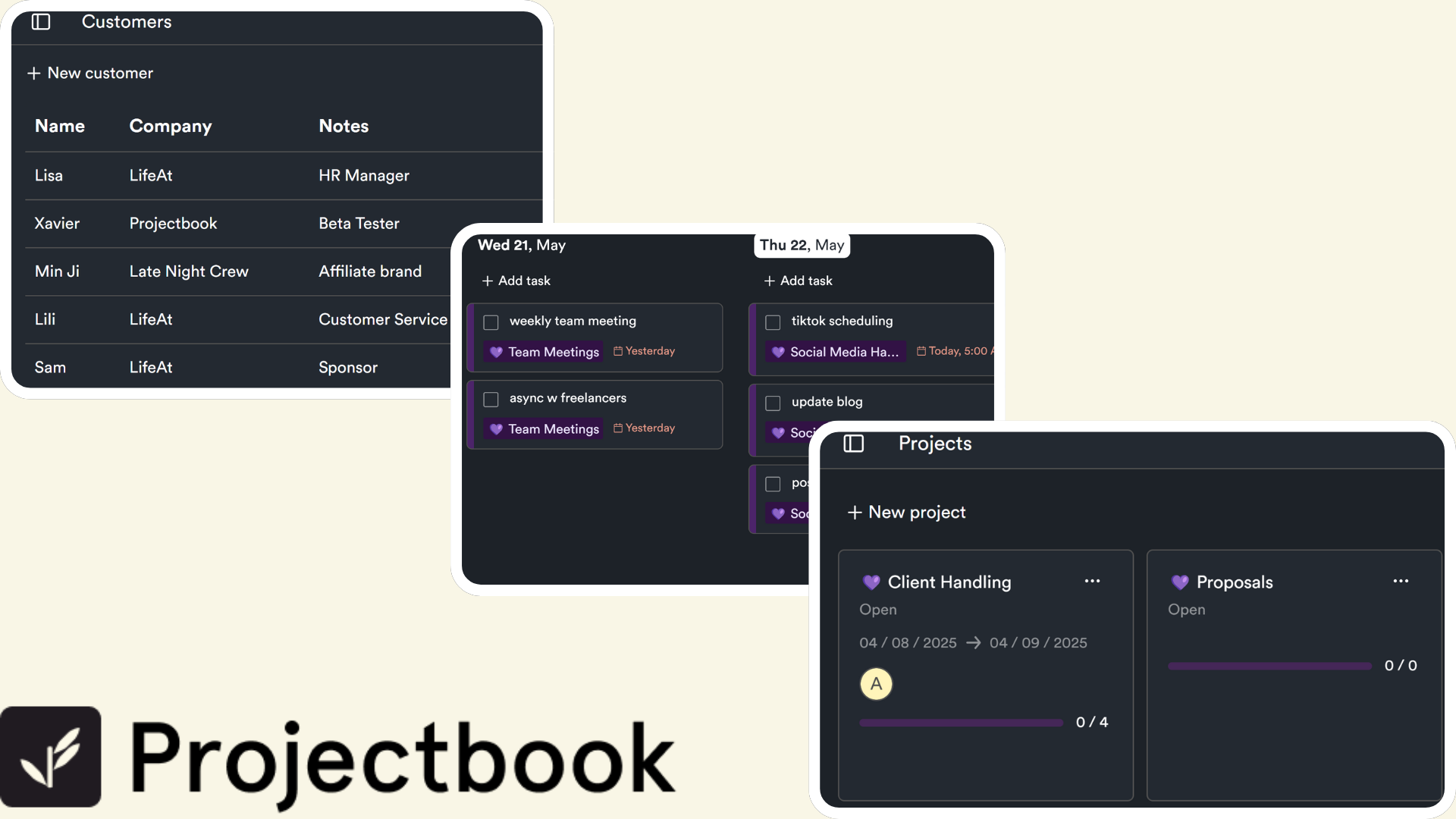
Final Word
Deadlines tell you when to finish.
Phases show you how to move through the work.
As a freelancer, you don’t have to choose between structure and flexibility. You can build a system that respects your time, your energy, and your client’s needs—all without overloading your calendar.
With ProjectBook.co, you get the tools to build projects your way—anchored by clarity, guided by phases, and supported by a system that helps you finish strong.
Because good work doesn’t come from stress.
It comes from flow.

